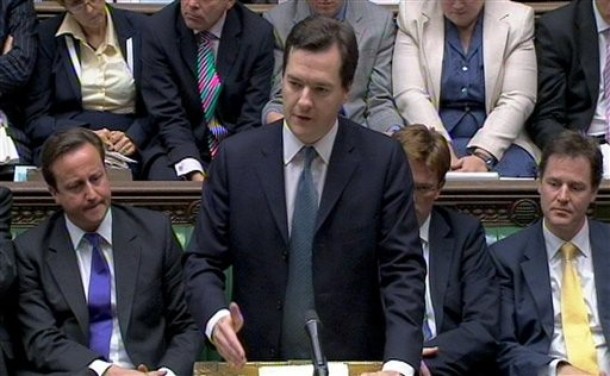Britain's spending cuts signal decline of welfare state.

Hamish McRae puts his finger on something important when writing about Britain's massive spending cuts:
You can look at this in two ways. You can see it as a course correction, a violent one to be sure, but one essentially made necessary by past errors. This is the idea that we have to get back on track, that doing so will be painful, but that when we do all will be hunky dory. Or you can see it as something quite new, the early stumbling stages along a path towards redefining the role of government itself â?? what the state in a Western society does for its citizens, and what it does not or indeed cannot do.
McRae is inclined to the later interpretation and so am I. In quick succession, the financial crisis has exposed three underlying global trends: the failure of lightly regulated, highly globalized financial markets and the free-wheeling capitalism they had come to represent, the unsustainability of the Western welfare state, and the emergence of Asia as the growth engine for the global economy. If these trends continue - if the twin models of Western development (American/British capitalism and the European welfare state) continue to collapse on themselves while Asia continues to boom - than the West is going to have to make significant changes to how it does business.
I tend to think that Western democracy contains the seeds of its own regeneration and will emerge from these trials in tact and not in tatters, but the expectations of many of her citizens are almost certainly going to have to be re-calibrated. And that process can be quite painful and tumultuous.
(And as an obvious caveat: there are a number of events that could postpone this reckoning, not least of all a serious slowdown in Chinese growth or some kind of general collapse of the emerging markets.)
(AP Photo)



